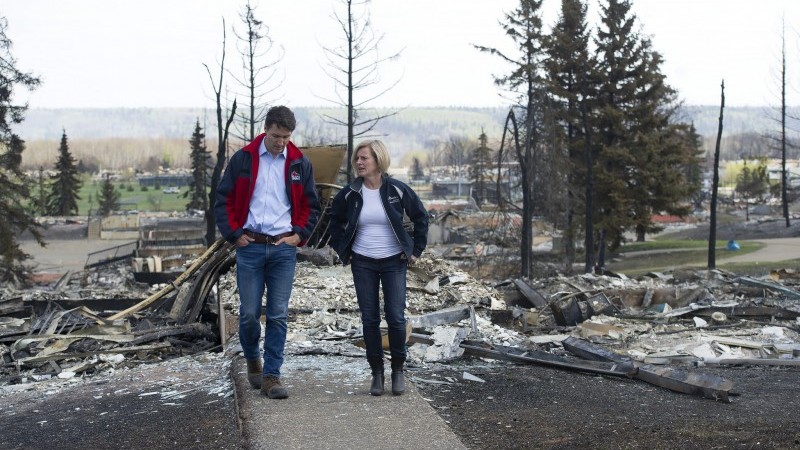With his “naive, magic-wand thinking,” Justin Trudeau “shoots an Alberta-sized hole in his credibility”.
The verdicts, there, of columnists from the Edmonton Sun and National Post on a supposed “gaffe” that dominated the Canadian media this weekend.
How had the prime minister so embarrassed himself? He had the temerity to suggest, in a town hall meeting in Ontario, that the country ultimately needs to get out of the tar sands business.
“We can’t shut down the oil sands tomorrow. We need to phase them out. We need to manage the transition off of our dependence on fossil fuels. That is going to take time,” said Trudeau.
Underlying this backlash is anxiety about jobs – a recognisable theme from many declining industrial and extractive regions across the world.
If his opponents are genuinely outraged by this, though, they clearly haven’t been paying attention lately – let’s put Trudeau’s remarks in context.
1. 195 countries agree
At a 2015 UN summit in Paris, 195 governments adopted a deal to put a lid on dangerous climate change.
The agreement promised “to achieve a balance between anthropogenic emissions by sources and removals by sinks… in the second half of the century”.
That’s effectively a fossil fuel phase-out. Coal, oil and gas can only be burned if their emissions are pumped underground or offset by large-scale tree planting, for example.
2. Even Saudi Arabia
Yes, the world’s biggest oil producer has ratified the Paris pact. What is more, it plans to diversify its economy away from hydrocarbons.
Deputy crown prince Mohammed bin Salman reckons that by 2035, the kingdom will no longer be financially dependent on oil.
That may be tough in practice and not everyone shares the young reformer-in-chief’s optimism. But debate about the end of the oil era has entered the mainstream.
3. Stephen Harper said the same
Trudeau’s predecessor may have pulled Canada out of the Kyoto Protocol, but he endorsed this agenda before leaving office.
It was Harper who signed a G7 statement ahead of the Paris summit committing Canada to decarbonise its energy sector by 2050 and entire economy by 2100.

G7 countries are responsible for nearly a quarter of global greenhouse gas emissions (Pic: Number 10/Flickr)
4. This won’t happen overnight
In the very same video clip, Trudeau defends new oil pipelines he has approved, clearly signalling a role for tar sands for decades yet.
Environmentalists complain he is giving out mixed messages, posing as a climate leader on one hand and facilitating oil development on the other.
Trudeau argues his administration has “a fundamental responsibility” to get Canada’s resources to market, until the world develops large scale alternatives.
5. The market will decide
Nobody knows quite how fast economies will switch over from combustion engines to electric vehicles, but the direction of travel is clear.
As climate policies and clean technology kick in, the most expensive sources of oil will be the first to go. Tar sands, which take a lot of energy to process, are on the expensive end of the scale.
Established fields could stay viable for 20 or 30 years, according to Andrew Grant, an analyst at Carbon Tracker, but new ventures are risky. “There is a danger of Canadian investors misreading future demand for oil,” he told Climate Home.
6. Time to talk just transition
Trudeau’s critics are right about about one thing: this affects workers.
When communities are built around one commodity and it tanks, it’s hugely disruptive. Thousands of staff were laid off in Alberta after oil prices slumped from mid-2014.
Climate policies will undermine oil demand and ultimately the level of employment in that sector. There are no easy answers, but think-tanks like the Canadian Centre for Policy Alternatives are preparing for a “just transition” to greener jobs.
Instead of whipping up empty outrage, right wingers would do well to get involved in that discussion.
